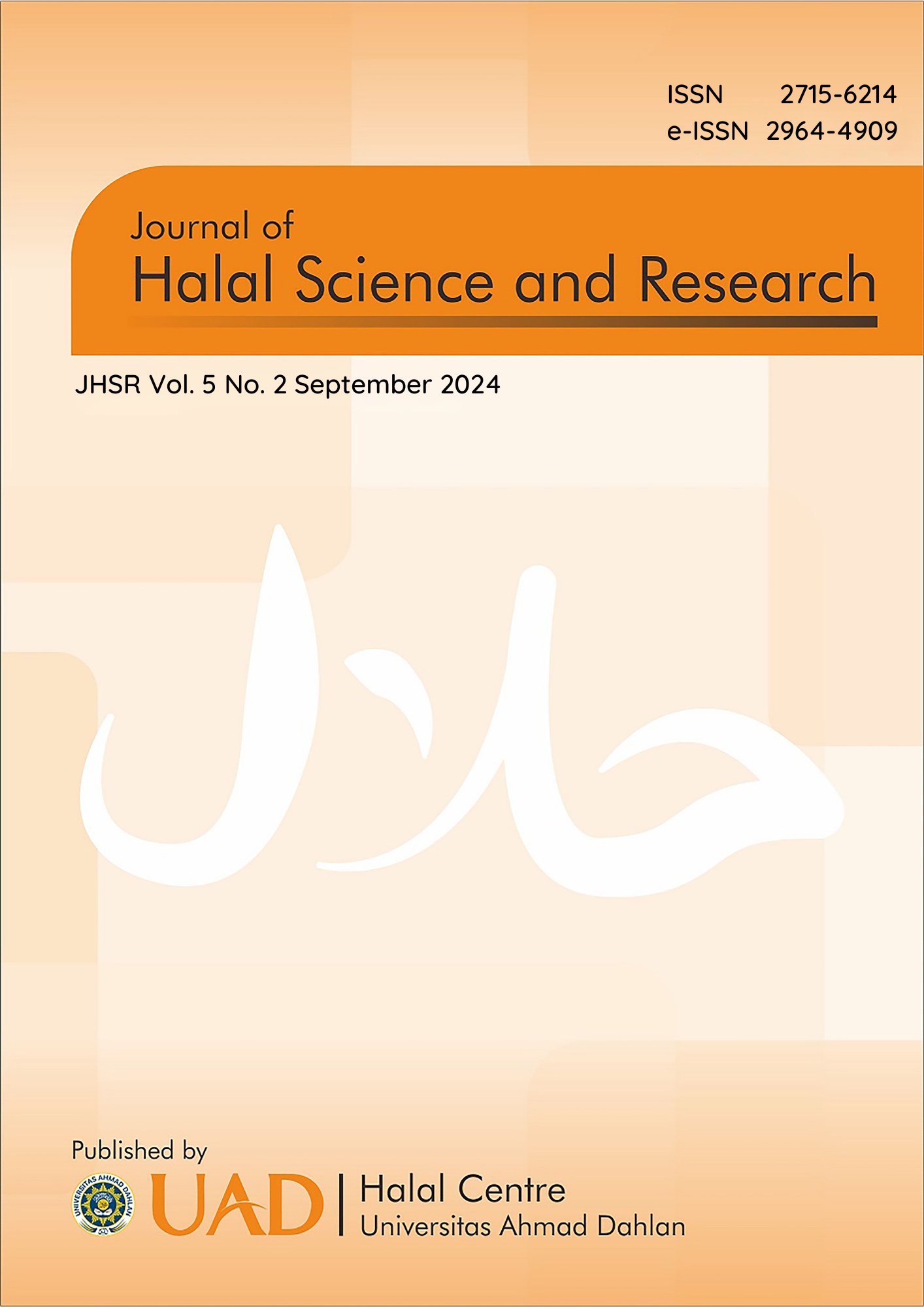The importance of drug symbols and halal logos in the pharmaceutical industry: Effect, understanding, and implementation
DOI:
https://doi.org/10.12928/jhsr.v5i2.9931Abstract
With its predominantly Muslim population, Indonesia has significant potential in pharmaceuticals and herbal products, making it a focal point for government initiatives to drive growth in the sector. Despite these efforts, compliance with halal standards and obtaining halal certificates still face many challenges. This research examines the efforts to fulfill halal certification obligations by implementing halal standards in pharmaceutical and herbal products. This research uses a descriptive qualitative study; the data was collected through observational reviews and interviews and supplemented with a comprehensive literature study, which includes various sources such as journals, books, online media, and other additional references. This study reveals that setting standards or halal certification involves three parties, namely the Halal Product Assurance Organizing Agency (BPJPH), the Halal Examining Agency (LPH), and the Indonesian Council of Ulama (MUI). BPJPH implements the halal product guarantee. Then BPJPH will submit it to Lembaga Pengkajian Pangan, Obat-obatan dan Kosmetika (LPPOM) as LPH to check the adequacy of documents, compile audits, conduct audits, hold auditor meetings, issue audit memoranda, and submit audit result records to the MUI Halal Fatwa Session. Together with the Fatwa Committee, MUI determines the level of halalness of the product based on the audit results and issues a MUI Halal Decree.
Keywords: Herbs, Halal Industry, Halal Certificate, Medicines
Downloads
Published
Issue
Section
License
Copyright (c) 2024 Universitas Ahmad Dahlan

This work is licensed under a Creative Commons Attribution-NonCommercial-ShareAlike 4.0 International License.
Authors who publish with JHSR (Journal of Halal Science and Research) agree to the following terms:
1. Authors retain the copyright and grant Universitas Ahmad Dahlan right of first publication with the work simultaneously licensed under a Creative Commons Attribution-NonCommercial-ShareAlike 4.0 License (CC BY-NC-SA 4.0) that allows others to share (copy and redistribute the material in any medium or format) and adapt (remix, transform, and build upon the material) the work for any purpose, even commercially with an acknowledgement of the work's authorship and initial publication in Universitas Ahmad Dahlan.
2. Authors are able to enter into separate, additional contractual arrangements for the non-exclusive distribution of the journal's published version of the work (e.g., post it to an institutional repository or publish it in a book), with an acknowledgement of its initial publication in Universitas Ahmad Dahlan.
3. Authors are permitted and encouraged to post their work online (e.g., in institutional repositories or on their website) prior to and during the submission process, as it can lead to productive exchanges, as well as earlier and greater citation of published work (See The Effect of Open Access).

This work is licensed under a Creative Commons Attribution-NonCommercial-ShareAlike 4.0 International License.




